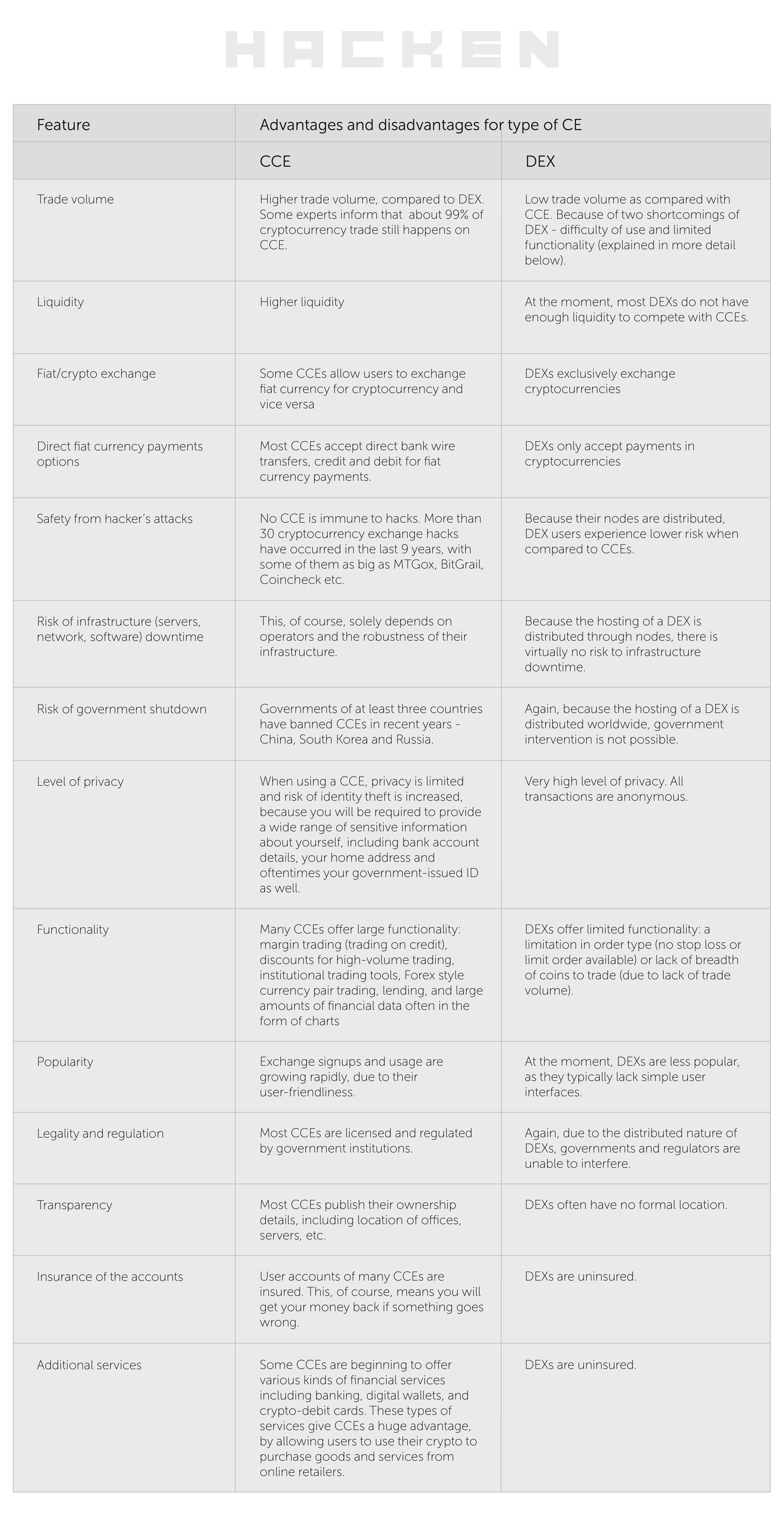Decentralized and centralized exchanges: advantages VS disadvantages
The place of cryptocurrency in today’s world
Nowadays, cryptocurrencies such as Bitcoin (BTC), Ethereum (ETH), Dash, Monero (XMR), Ripple (XRP), Litecoin (LTC) and others have become a global phenomenon known to most people. As of May 15, 2018, data site CryptoCoinCharts indexed 4,625 cryptocurrencies with a total 24h volume of $15.12 Billion and $405.63 Billion market capitalization! Among all the cryptocurrencies, BTC share in the market capitalization is roughly 36%.
According to Cambridge University’s Global Cryptocurrency Benchmarking Study, the current number of unique active cryptocurrency wallets is estimated to be between 2.9 million and 5.8 million. At least 1,876 people are working full-time in the cryptocurrency companies. Notably, the exchanges sector has the highest number of operating entities and employs more people than any other sector in the cryptocurrency marketplace. At press time, CoinMarketCap has 212 exchanges listed. One can only imagine how many individuals are engaged in the industry. Considering today’s hype around cryptocurrencies and the exchanges that list them, we at Hacken have decided to take on an educational role in the space, as we feel it incredibly important to know the difference between centralized and decentralized crypto exchanges.
Centralized Crypto Exchanges (CCE)
Centralized exchanges are trading platforms that function like traditional brokerage or stock markets. A CCE is owned and operated by a company that maintains total control over all transactions. Users of CCEs do not have access to the private keys of their exchange account’s wallets. This puts all of user’s trust in the hands of the exchange operators, as transactions can only be made through the mechanisms provided and approved by a central authority.
List of some famous CCE:
Decentralized Cryptocurrency Exchanges (DCE)
Much like cryptocurrencies, no companies operate DCE, as they are utilizing blockchain (distributed ledger) technology. In this way a DCE does not hold customers’ funds, positions, or information, and only serves as a matching and routing layer for trade orders.
List of some famous DCE:
- WavesDex
- Bancor Protocol
- Kyber Network
- EtherDelta
- AirSwap
- Altcoin
- Bisq
- Cryptobridge
- OasisDex
- OmegaOne
So, which is better? Comparison of features of CCE and DCE
Table

As we see from the comparison table above, choosing between CCEs and DCEs is not exactly cut and dry, as they both have their own advantages and disadvantages. While, these days, CCEs provide more functionality to their users, one must remember that the burgeoning cryptocurrency industry was born out of the emergence of blockchain (distributed ledger) technology.
The emergence of cryptocurrencies as a new form of money has had a massive impact on societies around the world. We have seen cryptocurrencies produce +10,000% returns over the last several years, and some continue their climb. Since governments do not centrally control cryptocurrencies, one of the most significant results of the blockchain craze has been the decentralization of money issuance. While blockchain tech does wonders for the worlds of business and governance, in terms of transparent recordkeeping, it is still up to exchanges and their users to protect valuable data and funds. At Hacken, we want to ensure the highest level of security and for all parties of good nature. Thus, we are not only providing excellent tools and services for securing blockchain and IT organizations, but we are also very excited to contribute our much-anticipated Crypto Exchange Ranks (CER) to the ever-evolving fintech industry.




